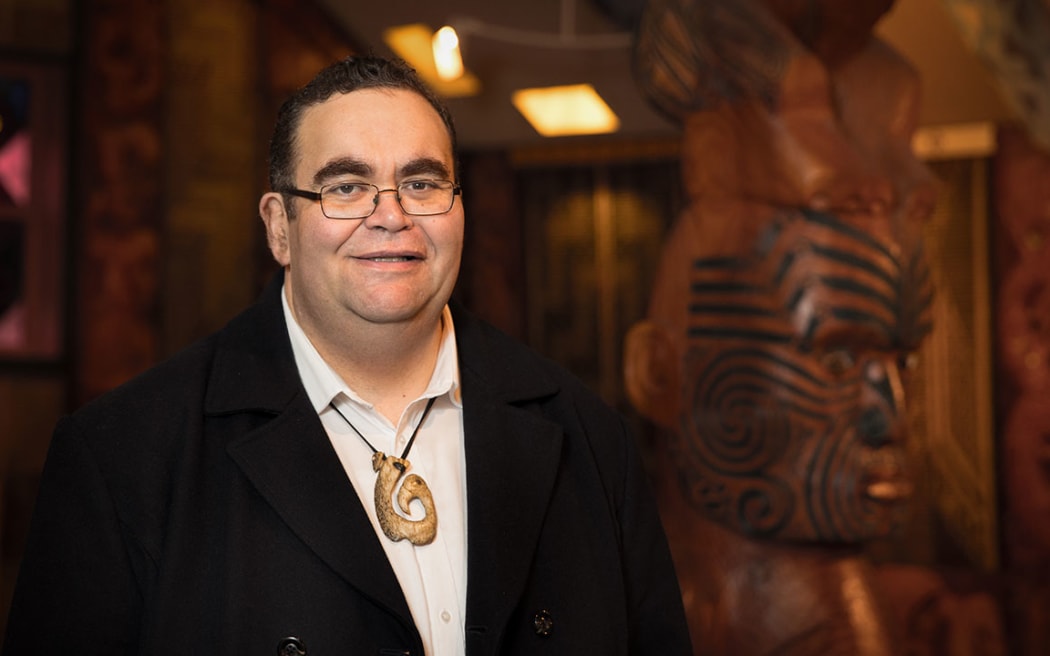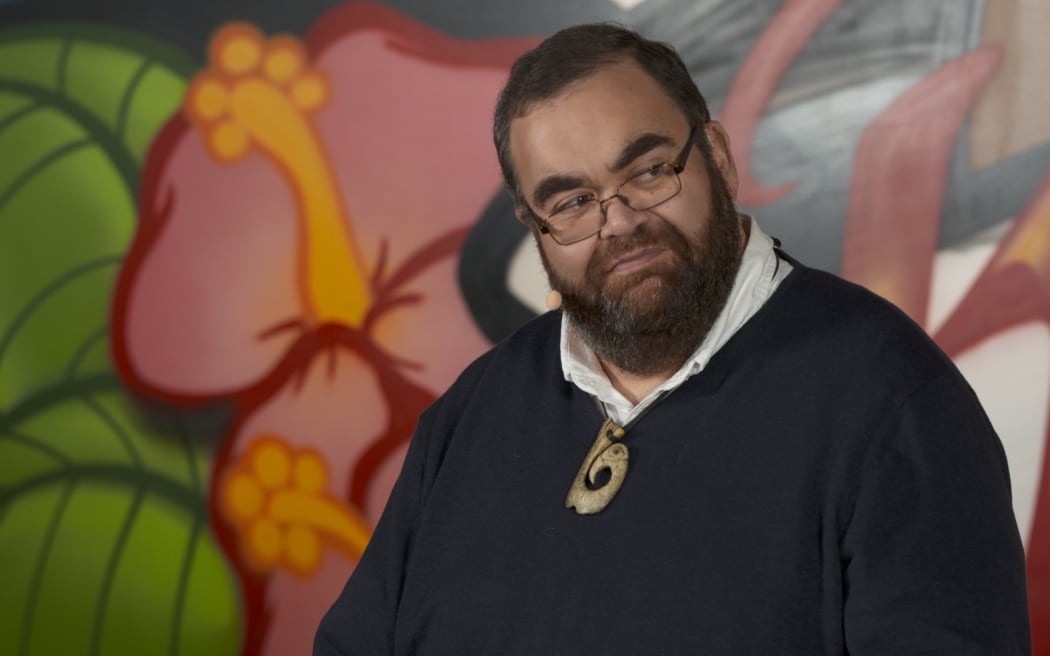
Dr Hirini Kaa nō Rongowhakaata, Ngāti Kahunungu, Tairāwhiti Whanui. Photo: Supplied
Dr Hirini Kaa is an Anglican Priest ministering in south Auckland and the manukura (principal) at St John's Theological College.
In the next of this weekly series, Dr Kaa shares a favourite whakataukī, or traditional Māori aphorism, with Emile Donovan.
"Tā te tamariki tāna mahi wāwāhi tahā.
"It is the job of the children to smash the calabash."
Kaa told Nights it was hard to settle on a whakataukī but he decided against scripture.
"I decided not to go with scripture which is, essentially, lots and lots of whakataukī. That's the way that Jesus spoke, really, in whakataukī. That was his people's way of speaking."

Photo: RNZ / Screenshot
Kaa said he chose "tā te tamariki tāna mahi wāwāhi tahā" because his father had utilised whakataukī as an expression of his faith.
In the early 2000s, he said his father and other iwi leaders began a movement to eliminate violence within whānau.
"This whakataukī is about … it speaks to the way we have been trained to raise our children. Traditionally, we didn't use casual violence in our child-rearing. Yes, we practised infanticide, we could be as cruel as any other culture or society has ever been, as many are, but we didn't practice casual violence in our parenting, we didn't smack children, hit children … that sort of discipline wasn't common, and this is attested to by many sources of evidence."
Kaa said instead, whānau revelled in children pushing the boundaries.
"We wanted them to see the full expression of their spiritual, cultural, of themselves, so when they broke something, that wasn't an action to be punished, that was an action to be celebrated because they're finding the edges of their lives, of their reality. It spoke to what we'd become.
"That when a child broke something, you hit them, because that was the form of discipline that had been inculcated into us through colonisation. And it was a matter of really recovering our traditional practices and understandings and this is what whakataukī are genius at - they just bring us a house of knowledge."
The whakataukī was all about saying to whānau that there was another way to parent.
The results they saw from this were "incredible".
"Children are there to push the boundaries and we should celebrate that, not silence that, particularly through fear and violence."

